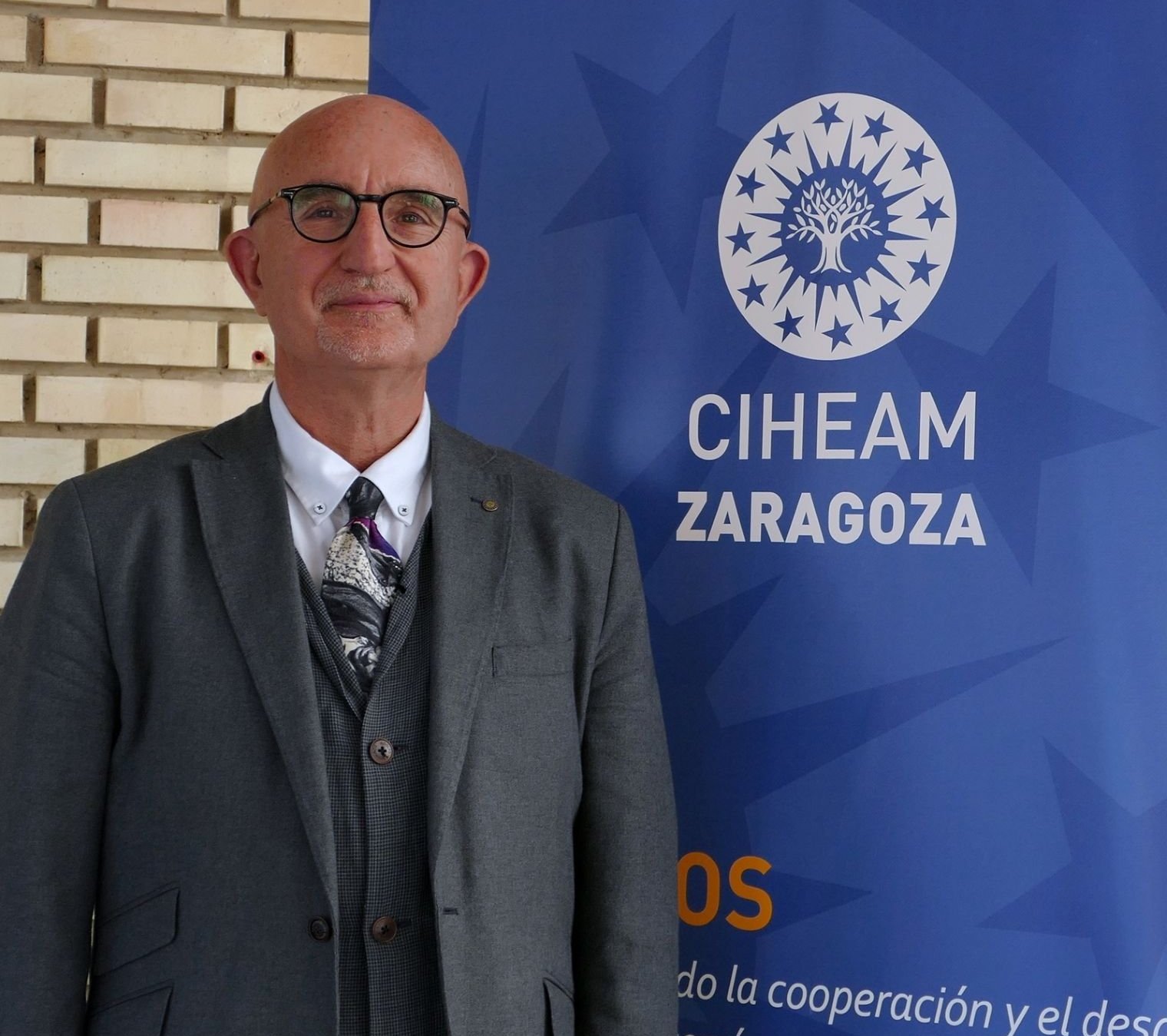
What training, research and transfer activities related to sustainable olive growing are currently being carried out and how important is this work for the olive sector?
In the field of training, CIHEAM Zaragoza collaborates with both public and private entities, together with the University of Cordoba, to offer the Master in 'Olive Growing and Olive Oil Technology'. Started in 1995, it has evolved into an internationally renowned Master, standing out as a successful example of inter-institutional cooperation. Now, in the academic year 2023-2024, we are celebrating its fifteenth edition. The tradition, the achievements obtained, the specialisation of the teaching staff, the prestige of the organising institutions and its international character make this Master in Olive Growing and Olive Oil Technology a world reference in the field of knowledge.
The objective of the Master's Degree is to provide a detailed and up-to-date review of the latest scientific and technical advances in olive production processes, as well as in the production of oils and table olives. This focus is placed in the economic framework and in the integral knowledge of the sector, with special emphasis on the sustainability of the productions and on obtaining high quality products. The Master, which takes place full-time over two academic years (120 credits, according to the European Credit Transfer System - ECTS), is structured in two parts. The first, with a professional orientation, includes lectures, field, laboratory and computer practicals, tutored personal work, technical visits and a stay in industrial mills. The second part includes a period of initiation to research, culminating with the Master's Thesis.
Recently, we have been successful in a development cooperation and international solidarity project in Lebanon, focused on strengthening sustainable local development and coexistence through improved olive yield and productivity.
What are the main aspects on which future research in the field of olive growing should focus?
First of all, we need to focus on training and knowledge transfer. This means promoting training programmes and facilitating knowledge transfer between researchers, farmers and other actors in the sector to encourage the adoption of innovative and sustainable practices in olive growing.
At the field research level we have to consider the following aspects:
The transformation of olive growing patterns is unstoppable. How do you think the traditional system will coexist with the new ones in the future?
Traditional systems are likely to continue to be valued for their cultural heritage and their contribution to the diversity of the agricultural landscape. The conservation of traditional methods may be important to preserve the authenticity and identity of certain olive oil producing regions. New farming models often focus on efficiency and sustainability, using innovative technologies and more advanced farming practices. Coexistence could involve the selective adoption of these practices to improve the productivity and sustainability of the traditional system. For example, the introduction of new varieties of olive trees resistant to climate change and diseases could be a point of convergence. Coexistence would allow genetic diversification, strengthening the resilience of the olive grove to specific threats.
Both systems could be oriented towards the production of high quality oils, but with different approaches. While the traditional system could emphasise the particular organoleptic characteristics of a region, the new models could emphasise innovative extraction practices and full traceability of the product.
There is a strong need for the implementation of precision farming and digitisation technologies that could be adopted by both traditional and modern systems. Coexistence could imply the integration of these tools to optimise olive orchard management in different contexts.
To conclude, in the end it will all depend on the adaptability of farmers, market demands, technological advances and agricultural policies that support both the preservation of traditional practices and the incorporation of innovations in the olive sector.
Finally, what can participating in an international project such as the World Olive Oil Congress bring to your organisation? And vice versa?
For the World Olive Oil Congress: Our participation as an international organisation brings diversity and unique perspectives to the congress, enriching the experience for attendees. Our contribution can enhance the quality of the congress content by adding expertise and relevant case studies and debates. Our presence can attract a wider audience, including professionals, academics and business people interested in the olive oil industry.
Finally, the congress can benefit from establishing closer relationships with key organisations, fostering the possibility of future collaborations.
